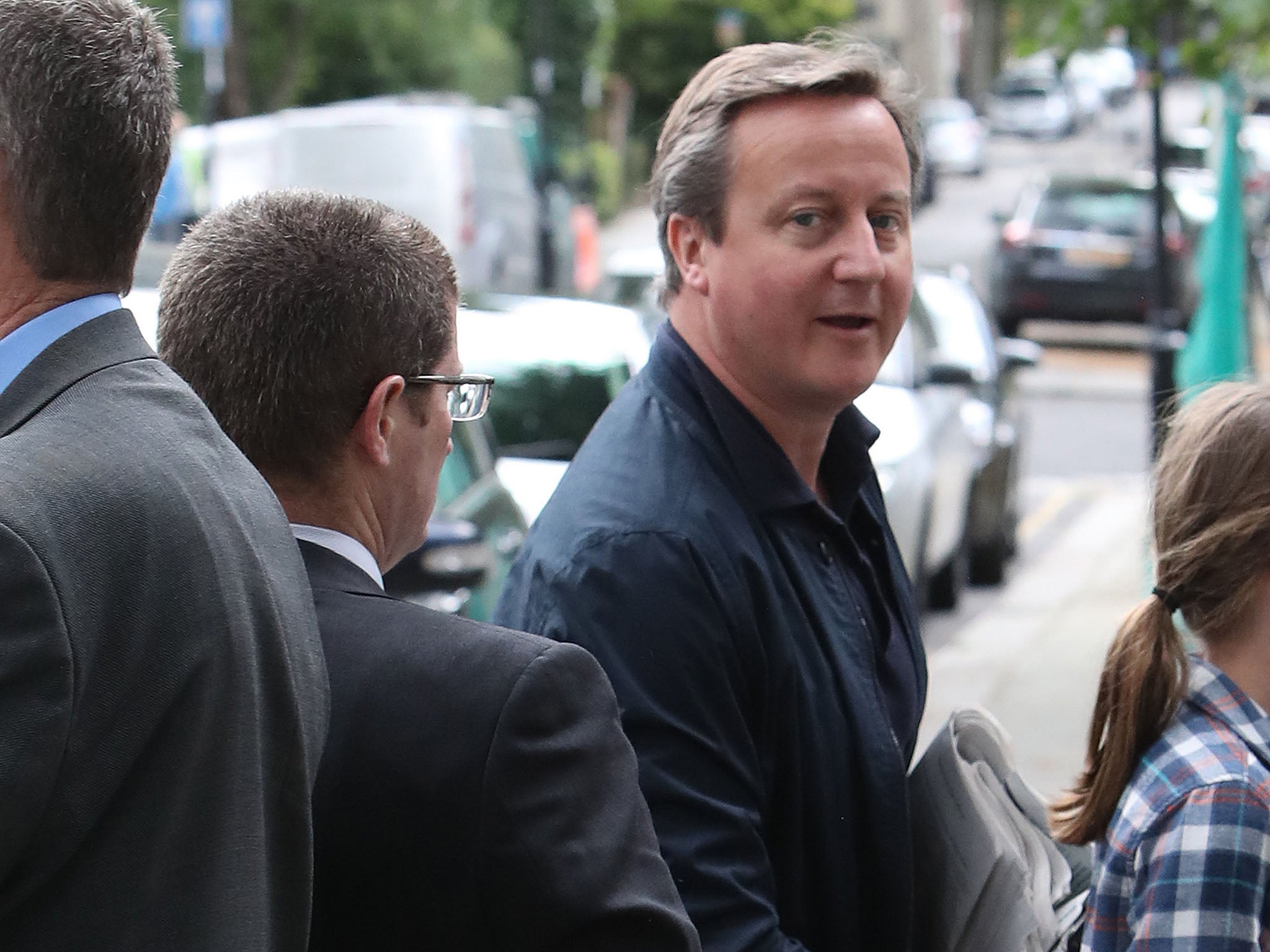Why did David Cameron stand down as an MP? Theresa May’s Brexit Britain is making it impossible for him to stay
A life after Westminster beckons as the Witney MP decides not to sit out his time on the back benches after all


Westminster is an uncomfortable place for former prime ministers. They can’t win. They are either accused of being the “Incredible Sulk,” as Edward Heath was when he hung around, determined to outstay in the Commons the woman who deposed him as Tory leader in 1975, Margaret Thatcher.
Or they are accused of being absent without leave, as Gordon Brown was after making only rare Commons appearances after Labour lost the 2010 general election. The other option is to get out fast, as Tony Blair did after handing over to Brown in 2007. That has traditionally been seen as bad form because it causes an unnecessary by-election, and looks like the former PM can’t be bothered to go back to being a mere backbencher dealing with constituents’ problems rather than vital matters of state.
It is perhaps no surprise that David Cameron, who once dubbed himself “the heir to Blair”, has opted for the Blair option and is resigning his Witney seat with immediate effect. Although he vowed to stay on as an MP when he quit as PM after the Brexit vote in June, he has had second thoughts after weighing up his options over the summer.

Cameron can – just about – claim there are special circumstances that justify him turning his back on Westminster. His spectacular downfall, just 13 months after winning a general election, was caused by the issue that will dominate British politics for years to come – Brexit. So it would have been very hard for him to engage in that debate.
Second, it would be difficult for him to say much about other matters without being accused of being a backseat driver or bitter man. Today’s media would put every half sentence under the microscope in the hope of getting a “Cameron attacks May” headline.
One factor in Cameron’s decision was surely that Theresa May has defined herself against him, making a deliberate break with the posh boys’ era of a country working for “the privileged few” and halting his policies such as the Hinkley Point nuclear plant and his opposition to new grammar schools. So if he had stayed on as an MP, Cameron would have had to either take a Trappist vow of silence, or would have been accused of disloyalty to May if he had defended his record. He is writing his memoirs and so we will probably have to wait until next year to get his version of the dramatic events which brought him down.
Cameron’s sudden departure will doubtless be seen as in character by his critics. His genuine attempt to make a dignified exit in June was soured by his extravagantly long resignation honours list and the revelation that he had rushed though wage rises and higher-than-usual severance payments for his special advisers. The cost of Cameron’s golden goodbyes has been estimated at £12m.
His honours list has been seen as him putting up two fingers to the political world. It has played badly even in Conservative circles, where his decision to hand peerages to key aides has fuelled demands for the bloated 800-strong House of Lords to be cut down in size. There is growing pressure for the number of peers to be no higher than the number of MPs, which under boundary changes will fall from 650 to 600 by 2020. If a slimline Lords is a Cameron legacy, it will be an accidental one.
Unfortunately for Cameron, his legacy will be as the man who gambled on an unnecessary referendum and took the country out of the EU by accident. It could get even worse if Scotland votes to leave the UK.
However, there is still time for Cameron to learn a lesson from the man he still calls “the master”. Blair’s reputation was sullied not just by the Iraq War but by what appeared to be his ruthless money-making machine after leaving office. Cameron will certainly want to earn a good living – and will be able to. But, as Brown has shown, there is a better way of doing that than Blair has chosen.
Join our commenting forum
Join thought-provoking conversations, follow other Independent readers and see their replies
Comments
Bookmark popover
Removed from bookmarks